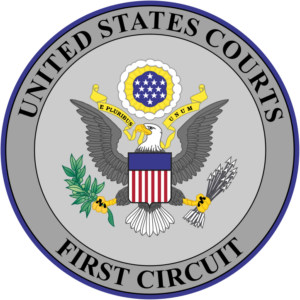NH Ban on Ballot Selfies Held Unconstitutional
Cyberlaw Clinic » Blog 2016-09-29
 On September 28, 2016, the First Circuit issued its opinion in Rideout v. Gardner, holding that New Hampshire’s prohibition on sharing photos of marked ballots (or “ballot selfies”) — N.H. Rev. Stat. Ann. § 659:35 (as amended in 2014) — is unconstitutional. The district court had found that that the law was a content-based restriction on speech and that it failed strict scrutiny under the First Amendment. The First Circuit opinion authored by Judge Lynch upheld the district court’s decision on narrower grounds, finding that — whether or not the law was content-based — it could not survive even the lower threshold of intermediate scrutiny. Previous blog posts provide more information about the amicus brief filed by the Cyberlaw Clinic in the case (on behalf of the New England First Amendment Coalition and the Keene Sentinel) and about the oral argument, which took place on September 13th before Judges Lipez, Lynch, and Thompson.
On September 28, 2016, the First Circuit issued its opinion in Rideout v. Gardner, holding that New Hampshire’s prohibition on sharing photos of marked ballots (or “ballot selfies”) — N.H. Rev. Stat. Ann. § 659:35 (as amended in 2014) — is unconstitutional. The district court had found that that the law was a content-based restriction on speech and that it failed strict scrutiny under the First Amendment. The First Circuit opinion authored by Judge Lynch upheld the district court’s decision on narrower grounds, finding that — whether or not the law was content-based — it could not survive even the lower threshold of intermediate scrutiny. Previous blog posts provide more information about the amicus brief filed by the Cyberlaw Clinic in the case (on behalf of the New England First Amendment Coalition and the Keene Sentinel) and about the oral argument, which took place on September 13th before Judges Lipez, Lynch, and Thompson.
In its opinion, the First Circuit held that “intermediate scrutiny is not satisfied by the assertion of abstract interests.” New Hampshire’s claim that the law was necessary to prevent voter fraud and intimidation was belied by the complete lack of evidence of vote buying in the state since the late 1800s. Therefore, the Court found a “substantial mismatch” between the law and its proffered rationale. There was also little evidence of any potential future fraud. Small cameras and digital photography have given people the capacity to share ballot selfies for years, yet there was no proof of voter fraud involving the sharing of digital images occurring anywhere across the country. Moreover, “several states have now expressly authorized ballot selfies, and those states have not reported an uptick in vote buying or voter intimidation.”
In addition, the Court found that the law was not narrowly tailored because it violated the constitutional rights of all voters to protect against the “unsubstantiated and hypothetical” abuses of only a potential few:
First, the prohibition on ballot selfies reaches and curtails the speech rights of all voters, not just those motivated to cast a particular vote for illegal reasons. New Hampshire does so in the name of trying to prevent a much smaller hypothetical pool of voters who, New Hampshire fears, may try to sell their votes. New Hampshire admits that no such vote-selling market has in fact emerged. And to the extent that the State hypothesizes this will make intimidation of some voters more likely, that is no reason to infringe on the rights of all voters.
The state also failed to show that other laws were insufficient to tackle potential voter fraud or intimidation. An easy alternative — as the Court noted the New Hampshire legislature considered but rejected — was to “simply make it unlawful to use an image of a completed ballot in connection with vote buying and voter coercion schemes.”
Especially important was that the law restricted core political speech afforded strong protection under the First Amendment. The Court relied on briefs submitted by several amici to demonstrate the growing popularity of ballot selfies as a way that younger voters engage in the political process. It also considered that pictures have unique communicative value, ending the opinion with the adage “a picture is worth a thousand words.”
Harvard Law School 2L and fall 2016 Cyberlaw Clinic student Alisha Siqueira contributed to this post.